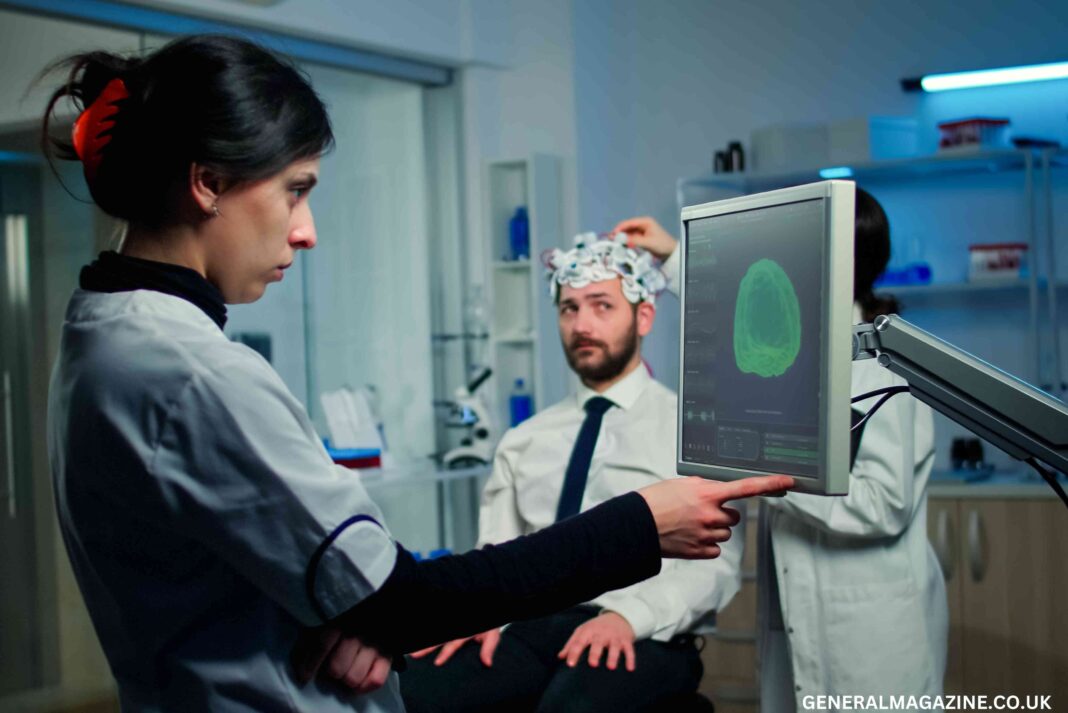Introduction To Doctorhub360.com Neurological Diseases
Have you ever wondered how your brain and nerves work together to keep your body functioning seamlessly? Neurological diseases can disrupt this harmony, leading to challenges that can impact your daily life. At Doctorhub360.com, you’ll find valuable insights and resources to better understand these conditions, their symptoms, and potential treatments.
Let’s take a closer look at what neurological diseases are and how Doctorhub360.com is helping people navigate this complex field with ease and clarity.
What Are Neurological Diseases?
Doctorhub360.com neurological diseases affect the brain, spinal cord, and nerves throughout your body. These vital parts of your nervous system control everything from movement and sensation to thoughts and emotions. When something goes wrong, it can lead to a wide range of disorders, from headaches to debilitating conditions like Parkinson’s disease.
Why Understanding Neurological Health Matters
Your nervous system is like the body’s command center. Imagine trying to operate a computer with faulty wiring—it simply wouldn’t work as it should. Similarly, maintaining neurological health ensures that your body and mind can function optimally, allowing you to live a fulfilling life.
Common Neurological Diseases
There are hundreds of neurological diseases, but some are more common than others. Here are a few:
Alzheimer’s Disease: A progressive condition that affects memory and cognitive function.
Epilepsy: A disorder characterized by recurring seizures.
Multiple Sclerosis (MS): A condition where the immune system attacks the protective covering of nerves.
Parkinson’s Disease: A movement disorder that can cause tremors and stiffness.
Migraine: Severe headaches often accompanied by nausea and sensitivity to light.
Signs and Symptoms to Watch For
Neurological symptoms can vary widely depending on the condition but may include:
Persistent headaches
Memory loss or confusion
Muscle weakness
Difficulty speaking or understanding speech
Loss of coordination
Seizures
If you notice these signs, it’s crucial to consult a healthcare professional immediately.
Causes and Risk Factors
Neurological diseases can result from various causes, including:
Genetics: Some conditions, like Huntington’s disease, run in families.
Infections: Meningitis and encephalitis can damage the nervous system.
Injuries: Trauma to the brain or spinal cord can lead to long-term neurological issues.
Lifestyle Factors: Smoking, poor diet, and lack of exercise can increase your risk.
Understanding these factors can help in prevention and early detection.
How Neurological Diseases Are Diagnosed
Diagnosing neurological diseases often involves:
Neurological Exams: Assessing reflexes, muscle strength, and coordination.
Imaging Tests: MRI and CT scans provide detailed pictures of the brain and spine.
Electrodiagnostic Tests: These measure electrical activity in the brain and nerves.
Doctors may also use blood tests and genetic testing to pinpoint specific conditions.
Treatment Options for Neurological Diseases
Treatment varies by condition but may include:
Medications: To manage symptoms or slow disease progression.
Surgery: For conditions like brain tumors or severe epilepsy.
Therapies: Physical, occupational, and speech therapy can improve quality of life.
Lifestyle Changes: Diet, exercise, and stress management play a key role.
Doctorhub360.com offers in-depth resources on these treatments to help patients make informed decisions.
Preventive Measures for Brain Health
While not all neurological diseases can be prevented, you can reduce your risk by:
Staying physically active
Eating a balanced diet rich in antioxidants
Avoiding smoking and excessive alcohol
Getting enough sleep
Keeping your mind engaged with puzzles or learning new skills
Living with Neurological Conditions

Life doesn’t stop after a neurological diagnosis. Many people adapt by:
Following a structured routine
Using assistive devices
Seeking emotional support from groups or counselors
Doctorhub360.com provides tips and tools to help individuals lead fulfilling lives despite their conditions.
The Role of Caregivers
Caregivers play a vital role in supporting those with neurological diseases. From managing medications to providing emotional support, their efforts are invaluable. Resources on Doctorhub360.com can guide caregivers in this challenging yet rewarding role.
Innovations in Neurology
Advancements in technology and research are transforming neurology. Some breakthroughs include:
Brain-Computer Interfaces (BCI): Helping paralyzed individuals communicate.
Gene Therapy: Targeting the root causes of genetic conditions.
AI in Diagnostics: Improving the accuracy and speed of diagnoses.
Doctorhub360.com highlights these innovations, offering hope to patients and families.
Doctorhub360.com: Your Trusted Resource
Doctorhub360.com is more than just a website—it’s a community dedicated to neurological health. From detailed articles to expert advice, the platform is a one-stop shop for information and support.
Success Stories from Patients
Real-life experiences inspire hope. Stories on Doctorhub360.com showcase individuals who’ve overcome challenges and found new meaning in life despite their diagnoses.
How to Support Loved Ones
Supporting someone with a neurological condition can be overwhelming. Here are some tips:
Listen without judgment
Educate yourself about their condition
Offer practical help, like driving them to appointments
Encourage them to join support groups
FAQs on Neurological Diseases
1. What are the early signs of neurological diseases?
Early signs include persistent headaches, memory issues, and muscle weakness. It’s important to seek medical advice if symptoms persist.
2. Can neurological diseases be cured?
While some can be cured, others can only be managed with treatments and lifestyle changes.
3. How does Doctorhub360.com help patients?
Doctorhub360.com provides resources, expert advice, and community support tailored to neurological conditions.
4. Are neurological diseases hereditary?
Some are, like Huntington’s disease, while others result from environmental factors or lifestyle choices.
5. What lifestyle changes can improve brain health?
Regular exercise, a healthy diet, adequate sleep, and mental stimulation can enhance neurological health.
